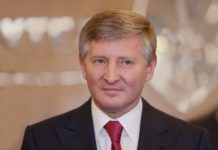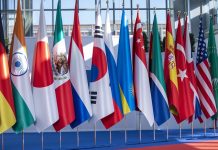Russian police have questioned around 200 people in connection with the incident with opposition figure Alexei Navalny, and checks are continuing, with staffers of Navalny’s Anti-Corruption Foundation (FBK) being subject to re-examination, the Russian Interior Ministry’s Transport Department said on Monday, Sputnik News reported.
“Transport police officers have carried out an extensive range of investigative and law enforcement intelligence operations. To obtain information that could help establish what really happened, around 200 people were questioned. These are the people who were in contact with Navalny or witnessed his staying in Tomsk and Tomsk region, and also some of the passengers who travelled on the same plane with him,” the Interior Ministry said in a statement.
“Taking into consideration videos, comments and interviews with different takes on the incident, transport police staffers are implementing extra investigative actions. In particular, they are re-examining FBK staffers who accompanied Navalny during the trip,” the statement read on.
Investigators are analysing the obtained explanations, expert conclusions, and other materials, the ministry noted.
The Russian Interior Ministry also said that Germany, Sweden, and France had not yet provided any response to a request for legal assistance in the Navalny case, the ministry added.
At the same time, Berlin is handling Russia’s second request for legal assistance on the incident, Russia’s Foreign Ministry said.
Navalny fell ill during a domestic Russian flight on 20 August. He was initially sent to a hospital in the Siberian city of Omsk, where the plane made an emergency landing. Two days later, once doctors had established he could be transported, the authorities approved a request from his family, allowing for Navalny to be transferred. He was flown to the Charite hospital in Germany for further treatment.
Later, Berlin said doctors had found traces of a nerve agent from the Novichok group in his system and that the tests had been confirmed by labs in Germany, Sweden, and France. Moscow stressed that the Russian doctors had found no toxic substances in Navalny’s samples and asked Germany to provide data – which Berlin refused, claiming that it is a military secret.












